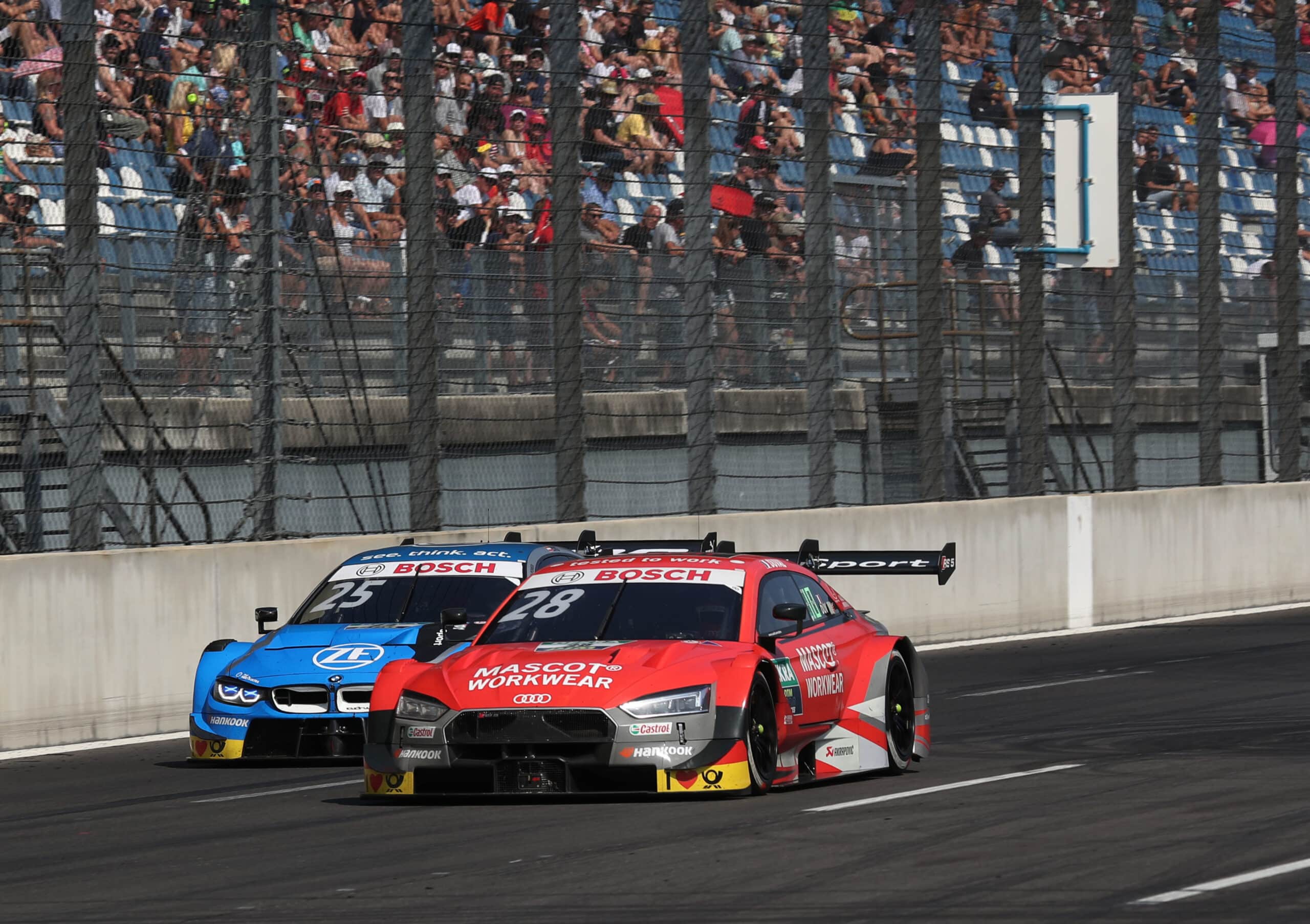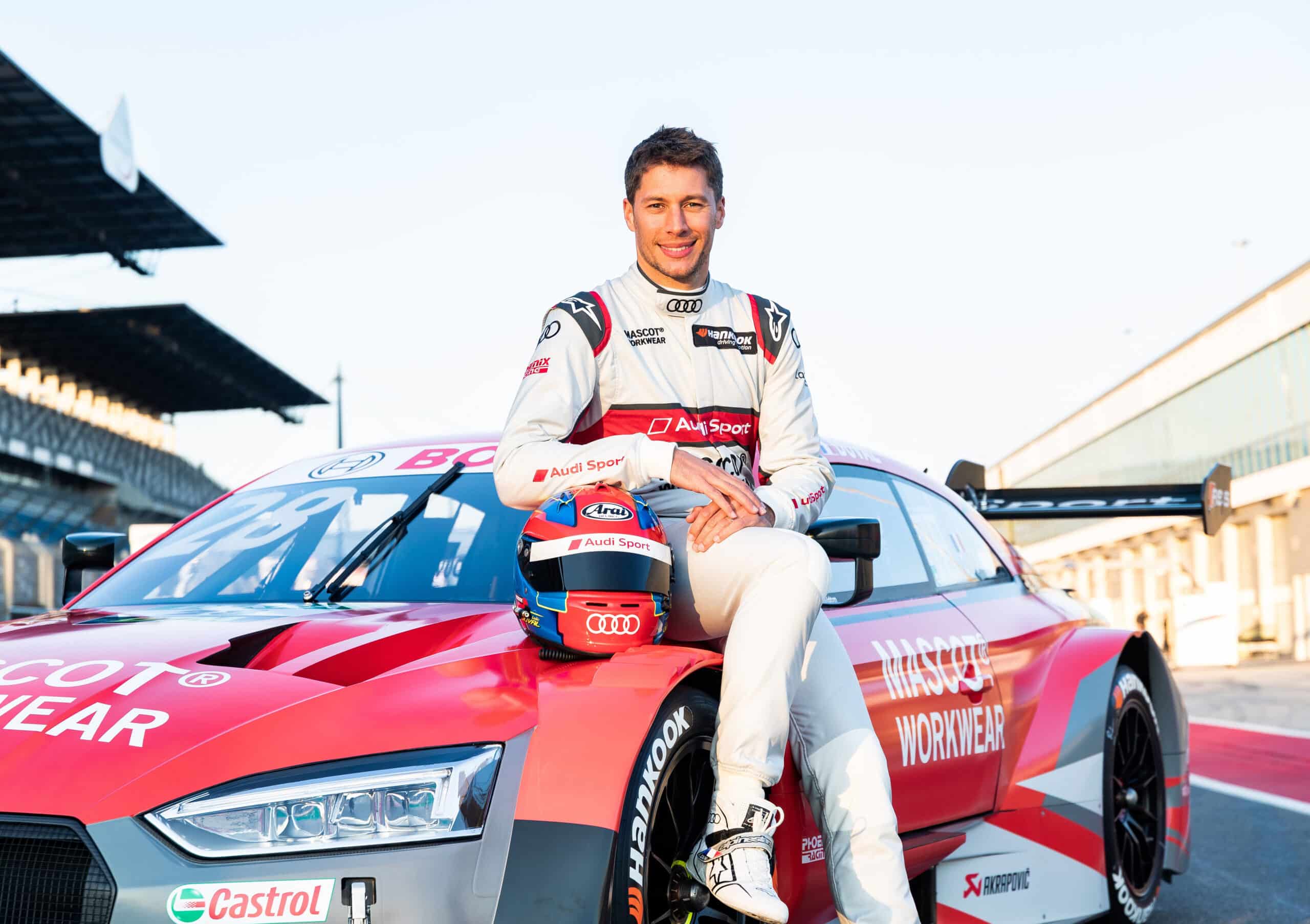When we talk about motor sport, it is with a mixture of fascination, respect and a certain fear of these “gods of the road” that nothing seems to stop. Half-man, half-hero, the cars runners are surrounded by a kind of mystical aura, animated by an extraordinary energy. But when passion becomes professional, reality catches up with fiction, as evidenced by the implementation of certain safeguards. And when the status of professional runner is added to that of father of a family, with all the responsibilities that this entails, reason seems to take precedence over this touch of madness intrinsically linked to a profession considered very risky.
Explanation and details with Loïc Duval, professional runner and family man.
Since 2005, you have officially entered the category of professional athletes. Can you give us a brief summary of your background?
Of course. My passion for circuits began when I was very young. I’ve started with karting at 14 years old – as is often the case with car drivers. Then I quickly climbed the levels, with a transition from kart to race car at the same time. 2005 marks my official entry into the professional circle with the signing of my first contracts with Japanese brands. My career was therefore launched in this country, before returning to Europe in 2012 with Audi. I have competed several times in the legendary Le Mans 24 Hours race and had the privilege of winning the 2013 edition, before Audi stopped its participating to choose the German “Deutsche Tourenwagen Masters” (DTM) championship, which I now defend under the Audi colors. In parallel, I am a consultant on Canal + for F1.
Motor racing is nowadays considered “very risky” : what consequences does this assessment have for professional pilots?
The first consequence, beyond the assessment, is obviously the physical risks. A professional car racer, who trains every day and participates in dozens of competitions, must constantly keep in mind that he’s not invulnerable! In addition to the risk of death, which is fortunately rare, there is the risk of disability, a stop in the carriere.
In terms of external assessment, I would say, the first thing that comes to mind is health coverage. It is indeed very complicated for runners to find classic companies that agree to cover the runner, but also his equipment, up to 100% and without any exclusion. And in a business where we are constantly moving, the international dimension is essential. We must be insured all over the world, with the possibility of being repatriated if we have a problem. We must not forget one key element: we are considered as self-employed and, if we have a physical problem and must stop or slow down, we are not covered financially. This must be taken into account in the choice of the insurer. Finally, as a father, I wanted one person (no more!) to manage our insurance portfolio, for the professionally and privately sides, to have everything in the same place.
How did you choose your service provider?
In our business, network is very important. When one or more runners tell you that they are satisfied with their insurance coverage, you trust them and immediately seek to know more. We are all in the same boat, with a high level of risk that requires us to be extremely vigilant in choosing our service provider. On this depends not only the insurance of our health, but also our cars, or even our family.
A service provider’s reputation with runners is also built in the field. When you see that PSPI is present on the circuits during major races, has real experience and expertise in the field related to its passion for the automotive world, it is clearly a major asset! And when the service provider in question struggles to find us the best offer according to our needs, comparing all the possible options, we know that we have made the right choice.
How is coverage finally assessed?
The more runners participate in races, the higher the risk becomes for insurers. The evaluation is therefore carried at a time which corresponds to the success and ambitions of the runner at this moment. It is important to imagine that a runner’s career generally ends around the age of 45 and that his “peak” can last only a few months. It is therefore important to have a provider who understands this notion of uncertainty and flexibility in insurance. In my case, PSPI has been able to find the optimal offer for me, my family, my assets, etc., with total coverage all over the world that can be reassessed in due course the day I decide to stop racing.
But at 37 years old, I still intend to take advantage of the good years ahead of me to live my passion at 100%!



